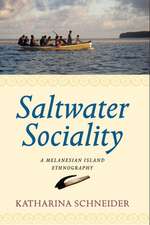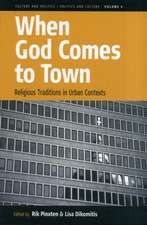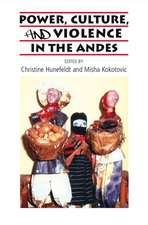European Products
Autor Gisela Welzen Limba Engleză Hardback – 31 aug 2015
""The book is very well written, the ethnography superb, the topic of great contemporary relevance . . . It makes a substantial contribution to our understanding of Cypriot society as well as to the creation of heritage."" . Vassos Argyrou, University of Hull
On the Mediterranean island of Cyprus, rural villages, traditional artefacts, even atmospheres and experiences are considered heritage. Heritage making not only protects, but also produces, things, people, and places. Since the Republic of Cyprus joined the European Union in 2004, heritage making and Europeanization are increasingly intertwined in Greek-Cypriot society. Against the backdrop of a long-term ethnographic engagement, the author argues that heritage emerges as an increasingly standardized economic resource, a "European product." Implemented in historic preservation, rural tourism, culinary traditions, nature protection, and urban restoration projects, heritage policy has become infused with transnational market regulations and neoliberal property regimes.
Gisela Welz is Professor and Chair of Cultural Anthropology and European Ethnology at Goethe University Frankfurt. She co-edited "Divided Cyprus: Modernity, History and an Island in Conflict" (with Yiannis Papadakis and Nicos Peristianis, Indiana University Press 2006)."
| Toate formatele și edițiile | Preț | Express |
|---|---|---|
| Paperback (1) | 256.92 lei 6-8 săpt. | |
| BERGHAHN BOOKS INC – 31 mar 2017 | 256.92 lei 6-8 săpt. | |
| Hardback (1) | 747.25 lei 6-8 săpt. | |
| BERGHAHN BOOKS INC – 31 aug 2015 | 747.25 lei 6-8 săpt. |
Preț: 747.25 lei
Preț vechi: 970.46 lei
-23% Nou
143.00€ • 149.11$ • 118.85£
Carte tipărită la comandă
Livrare economică 21 martie-04 aprilie
Specificații
ISBN-10: 1782388222
Pagini: 204
Ilustrații: 1 illustration
Dimensiuni: 152 x 229 x 13 mm
Greutate: 0.45 kg
Editura: BERGHAHN BOOKS INC
Descriere
The author argues that heritage emerges as an increasingly standardized economic resource - a "European product" - and that heritage policy has become infused with transnational market regulations and neoliberal property regimes.
















